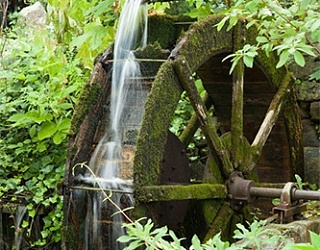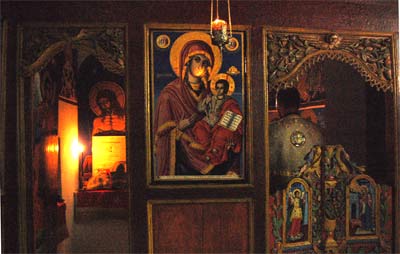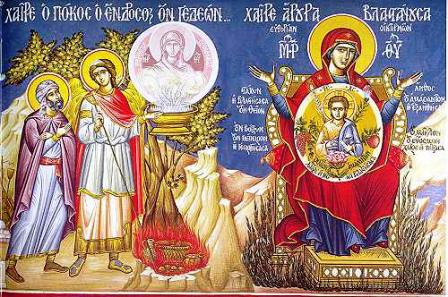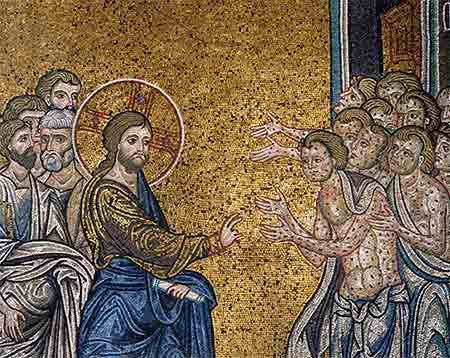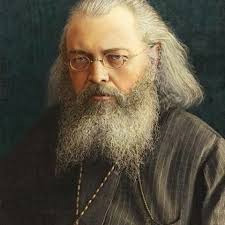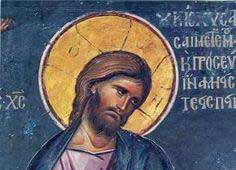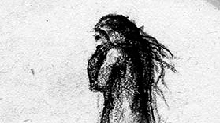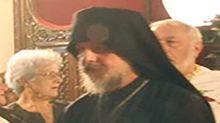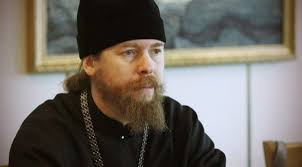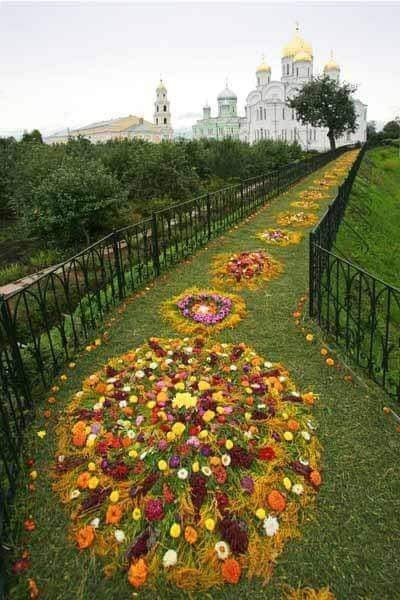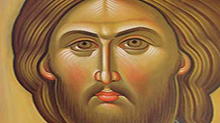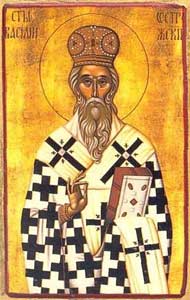
Свети Василиј Острошки
Родум од Попово Село во Херцеговина, од родители прости но благочестиви. Од малечок беше исполнет со љубов кон Божјата Црква, а кога порасна отиде во требињскиот манастир на Успение на Пресвета Богородица и прими монашки чин. Набрзо се прочу со својот сериозен и редок подвижнички живот, зашто себеси си налагаше подвиг врз подвиг, сѐ потежок и потежок.
Подоцна го посветија за епископ Захумски и скендериски, наспроти неговата волја. Како архиереј прво живееше во манастирот Тврдош и оттаму како добар пастир го утврдуваше своето стадо во православната вера, чувајќи го од турската свирепост и од латинското лукавство. А кога непријателите многу го притеснија, а Турците го разорија Тврдош, се пресели во Острог, каде што тврдо се подвизуваше, оградувајќи го своето стадо со непрестајни молитви. Се упокои мирно во Господ во 16 век. Неговите мошти останааа цели и целебни, нераспадливи и чудотворни до денешен ден. Чудата на гробот на Св. Василиј се безбројни. Кон неговите мошти притекнуваат и христијаните и муслиманите и наоѓаат исцеленија во најтешките маки и болести. Секоја година на Педесетница во Острог станува голем народен собир.

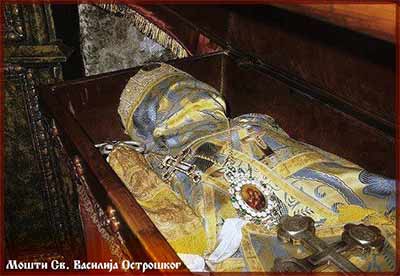
Saint Basil of Ostrog
Basil was born in Popova, a village in Hercegovina of simple and
God-fearing parents. From his youth, he was filled with love for the
Church of God and when he reached maturity, he entered to the Monastery
of the Assumption of the Birth-giver of God in Trebinje and there
received the monastic tonsure. As a monk, he quickly became renowned
because of his genuine and rare ascetical life. Saint Basil took upon
himself mortification upon mortification each one heavier and more
difficult than the last. Later, against his will, he was elected and
consecrated bishop of Zahumlje and Skenderia. As a hierarch, he first
lived in the Monastery Tvrdosh and from there, as a good shepherd,
strengthened his flock in the Orthodox Faith, protecting them from the
cruelty of the Turks and the cunning ways of the Latins. When Basil was
exceedingly pressed by his enemies and, when Tvrdosh was destroyed by
the Turks, he moved to Ostrog, where he lived an austere ascetical life,
protecting his flock by his ceaseless and fervent prayer. He died
peacefully in the Lord in the sixteenth century, leaving behind his
incorruptible relics; incorruptible and miracle-working to the present
day. The miracles at the grave of St. Basil are without number.
Christians and Muslims alike come before his relics and find healing of
their most grave illnesses and afflictions. A great people's assembly
(pilgrimage) occurs there annually on the Feast of Pentecost.



